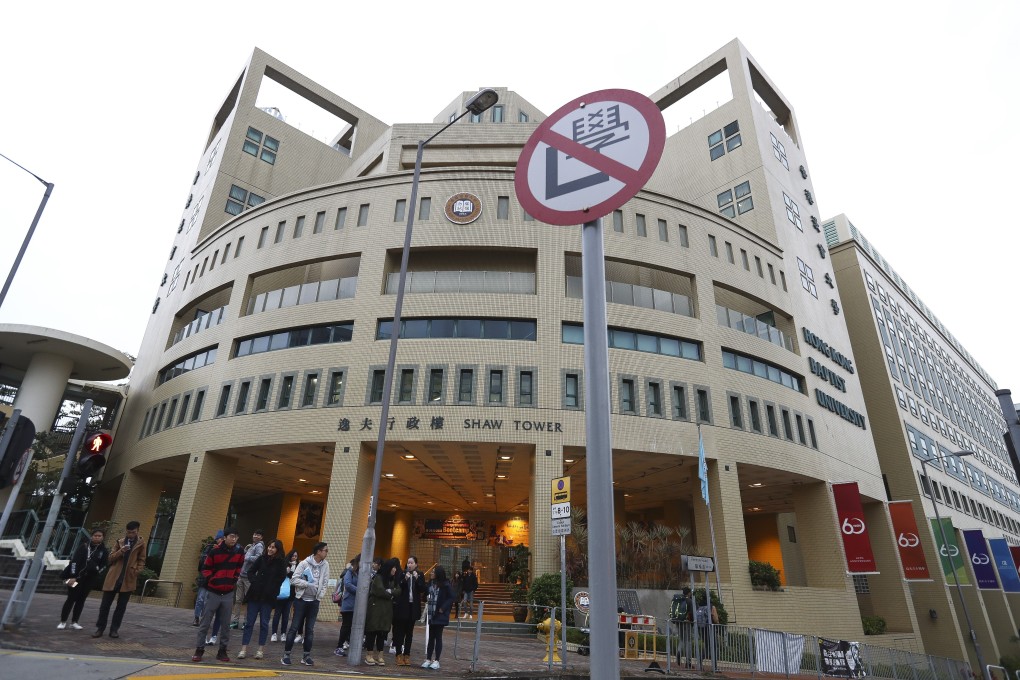Hong Kong Baptist University calls off exhibition featuring photos of 2019 protests over fears of clashes, source says
- A source says university leaders had become concerned after a pro-Beijing news outlet said the World Press Photo Exhibition 2020 ‘incites violence’
- Management was concerned that pro-Beijing figures might protest at the event, drawing counterprotesters and ultimately leading to clashes

A source with knowledge of the matter said the university’s president, Professor Alexander Wai Ping-kong, had met other members of the school’s senior management to discuss the World Press Photo Exhibition 2020 and made the decision on Thursday. Wai has only been in the position since February 1.
“The decision was made by the president and the top management,” the source said.
The exhibition was expected to run from Monday until March 21 at the university’s campus. But the organising committee of the Amsterdam-based World Press Photo Foundation posted on its Facebook page on Friday afternoon that it had been told about the decision to cancel earlier that day.

University leaders had grown worried after a pro-Beijing media outlet, DotDotNews, attacked the university in a recent article for hosting an exhibition that “incites violence”.
Management was concerned pro-Beijing figures would come to the campus and stage a protest, drawing supporters of the 2019 movement to counterprotest, and ultimately leading to a clash, the source said.